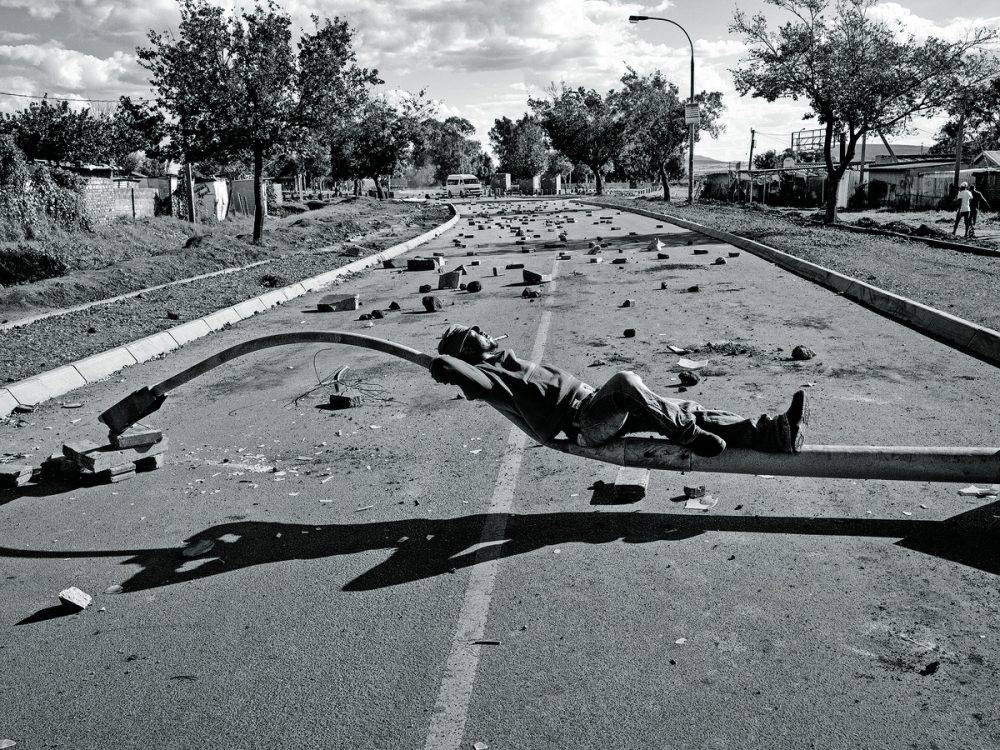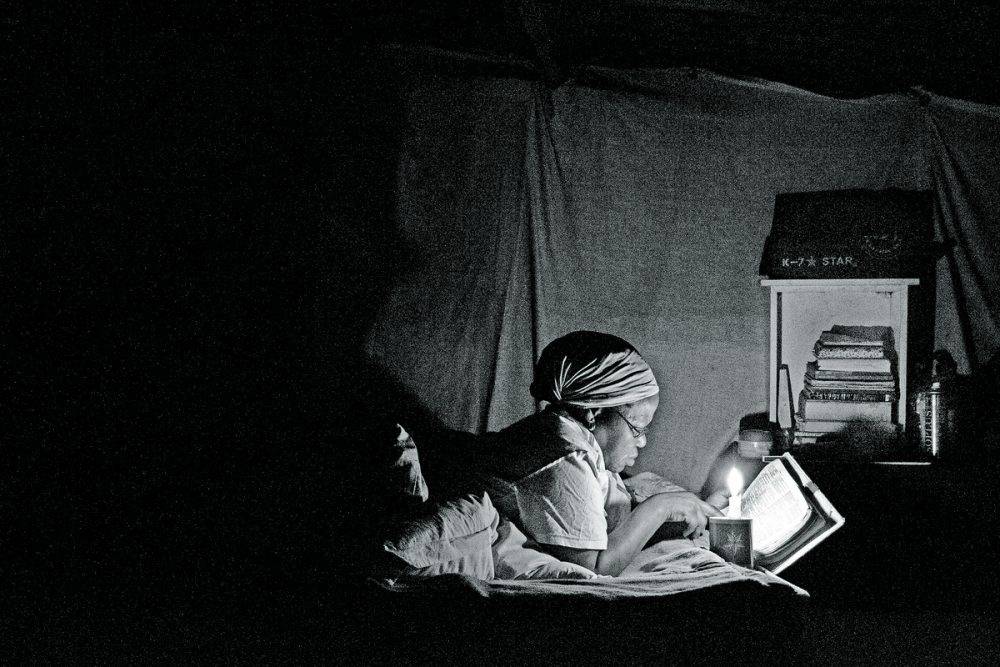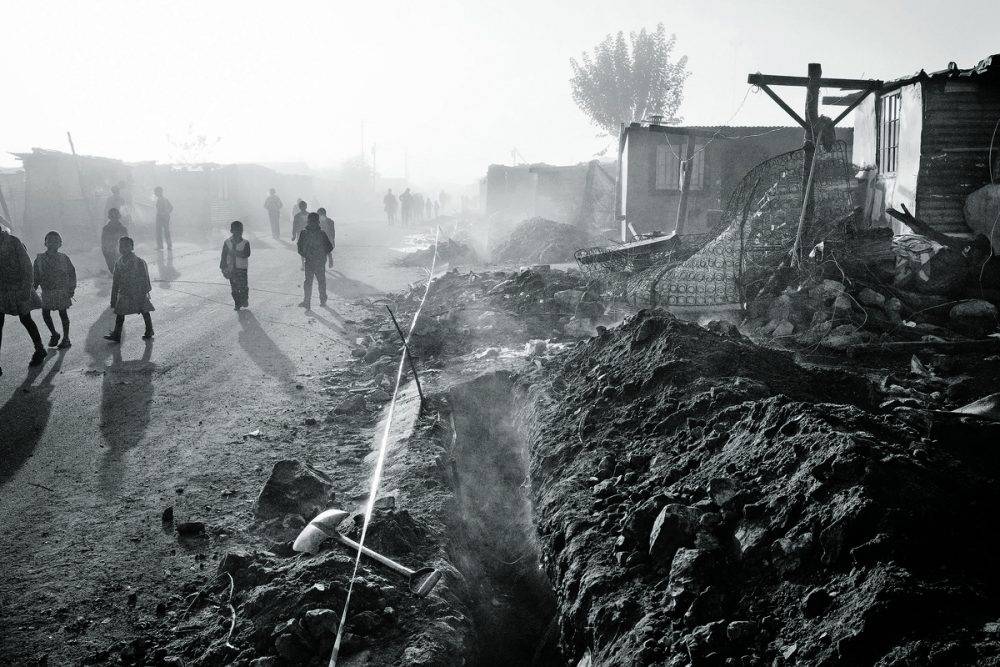Dark horse: Winner of this year’s FNB Art Prize Lindokuhle Sobekwa’s ‘Ezilalini (The Country)’
Photographer Lindokuhle Sobekwa has been awarded the 2023 FNB Art Prize and is the first documentary photographer in the history of the competition to win it.
“Sobekwa’s work is soaked in materialism and subtly resolving geographical and temporal distances. In his hand the camera invites absent presences, that were there when his images were made, into the present,” says a statement by FNB.
Previous winners include Dada Khanyisa, Wycliffe Mundopa, Lady Skollie, Bronwyn Katz, Haroon Gunn-Salie, Peju Alatise, Nolan Oswald Dennis, Turiya Magadlela, Portia Zvavahera, Nelisiwe Xaba, Mocke J van Veuren and Kudzanai Chiurai.
The jury consisted of Abigail Rands, marketing manager of Krone; Dr Joy Simmons, who is a collector, philanthropist and radiologist; and Kim Kandan, FNB Art Joburg’s representative.
“Creating compelling documentary photography, Lindokule Sobekwa’s work represents an explicitly South African narrative.
“He brings into focus a poignant reality in which both strife and soft moments exist — exposing, questioning and reflecting on current times and experiences,” the jury said.
Faye Mfikwe, FNB chief marketing officer, said: “We congratulate Lindokuhle on winning the coveted FNB Art Prize.
 A photo from Lindokuhle Sobekwa’s series which was shot during lockdown
A photo from Lindokuhle Sobekwa’s series which was shot during lockdown
“The FNB Art Prize was created to recognise talent and innovation in the arts. As a result, we are delighted to see artists pushing the boundaries of conventional thinking through creative expression.”
In my chat with Sobekwa, we spoke about his 2014 photo essay Nyaope, which was published in the Mail & Guardian and other publications, and we found out we had something in common — the pain of seeing your peers deteriorating right in front of your eyes.
“There is a part of my hood where I was warned not to pass because amagita [the guys] mug people. I took my camera and went there and took pictures.
“When I showed the guys the pictures I took of them, they got emotional, one even saying: ‘I never look like this,’” Sobekwa says.
 Gritty reality: Photographs from Lindokuhle Sobekwa’s ‘I Carry Her Photo With Me’ series, which was later made into a book with handwritten notes.
Gritty reality: Photographs from Lindokuhle Sobekwa’s ‘I Carry Her Photo With Me’ series, which was later made into a book with handwritten notes.
When he got home, he was affected by that experience of seeing amagita he grew up with in that situation and he knew that he had to tell their story. “I remember thinking that this could have been me,” he says.
He went back and asked for their permission and they agreed. They seemed to know that the project was bigger than them and had a much broader purpose, he said.
Sobekwa is more noble than most. Most of us would just walk past people like that and pretend we never played house with them when we were kids. We see thugs and fear them. As a result, no one takes the time to ask them what led to them being in this situation and whether they need help.
This body of work is brave but it is also a reflection of who Sobekwa is — a documentarian unafraid to probe his surroundings and give “misfits” a platform to tell their stories.
In 2015, Sobekwa got a scholarship to study at the Market Photo Workshop, where he refined his approach to the camera in both concept and technique. Since then, his successes have included being selected by the Magnum Foundation for Photography and Social Justice in New York to develop his project, I Carry Her Photo of Me.
Two years later, the handmade photo book was included in the African Cosmologies exhibition at the FotoFest Biennial in Houston, Texas.
 Gritty reality: Photographs from Lindokuhle Sobekwa’s ‘I Carry Her Photo With Me’ series, which was later made into a book with handwritten notes.
Gritty reality: Photographs from Lindokuhle Sobekwa’s ‘I Carry Her Photo With Me’ series, which was later made into a book with handwritten notes.
Last year, Sobekwa made his museum show debut at Huis Marseille in Amsterdam in the Netherlands before becoming a member of Magnum Photos and receiving the inaugural John Kobal Foundation Fellowship.
He is due to hold a solo exhibition at the Johannesburg Art Gallery.